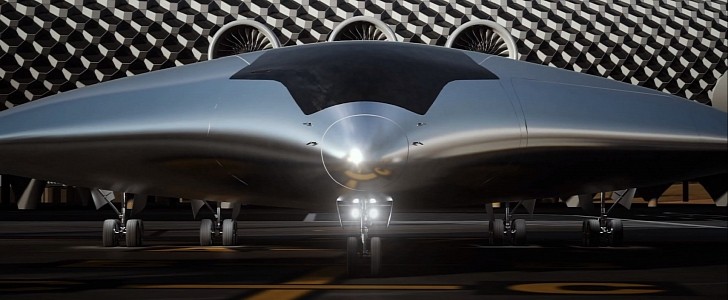Aiming to democratize freight transport and to increase cargo volume, U.S.-based company Natilus claims its autonomous aircraft will reduce carbon emissions by up to 50 percent and costs by 60 percent while offering a bigger payload capacity.
Ever since 2016, Natilus has been assiduously working on developing its fleet of fully autonomous cargo aircraft that will revolutionize the transport industry. Now it finally looks like all that hard work has paid off, with the manufacturer recently announcing more than $6 billion in advance purchase commitments from various clients such as Volatus Aerospace, Astral Aviation, Aurora International, Flexport, and others. Natilus boasts of receiving pre-orders for over 440 aircraft. Flexport alone invested $900 million and signed an LOI (Letter of Intent) for two 100T units.
Natilus has four types of remotely piloted, cargo aircraft to offer, each with its own capabilities: 3.8T, 60T, 100T, and 130T. Some of them are suitable for domestic flights, while others are engineered for intercontinental transport. All models feature a blended wing body design that offers 60 percent more cargo volume. The smallest of the four has a payload of 8 tons, while the biggest UAV (unmanned aerial vehicle) comes with 130 tons of payload and is suitable for long-range flights.
With its next-gen autonomous aircraft, Natilus aims to offer the best of both sea freight and air transportation, striking the perfect balance between convenience and cost. According to the San Diego-based manufacturer, there are currently only two ways to move cargo internationally: by air, which is expensive, and by sea, which is 13 times more affordable but 50 times slower in delivery. Nautilus promises to provide the timeliness of the former at the cost of the latter.
So far, the manufacturer completed two wind tunnel tests to validate its aircraft and expects to achieve the first flight of a full-scale prototype in 2023.
Natilus has four types of remotely piloted, cargo aircraft to offer, each with its own capabilities: 3.8T, 60T, 100T, and 130T. Some of them are suitable for domestic flights, while others are engineered for intercontinental transport. All models feature a blended wing body design that offers 60 percent more cargo volume. The smallest of the four has a payload of 8 tons, while the biggest UAV (unmanned aerial vehicle) comes with 130 tons of payload and is suitable for long-range flights.
With its next-gen autonomous aircraft, Natilus aims to offer the best of both sea freight and air transportation, striking the perfect balance between convenience and cost. According to the San Diego-based manufacturer, there are currently only two ways to move cargo internationally: by air, which is expensive, and by sea, which is 13 times more affordable but 50 times slower in delivery. Nautilus promises to provide the timeliness of the former at the cost of the latter.
So far, the manufacturer completed two wind tunnel tests to validate its aircraft and expects to achieve the first flight of a full-scale prototype in 2023.







